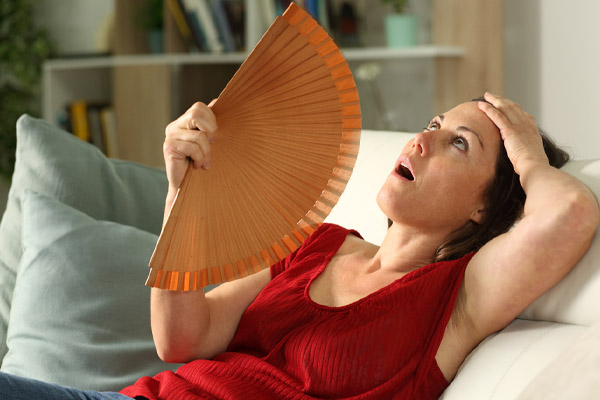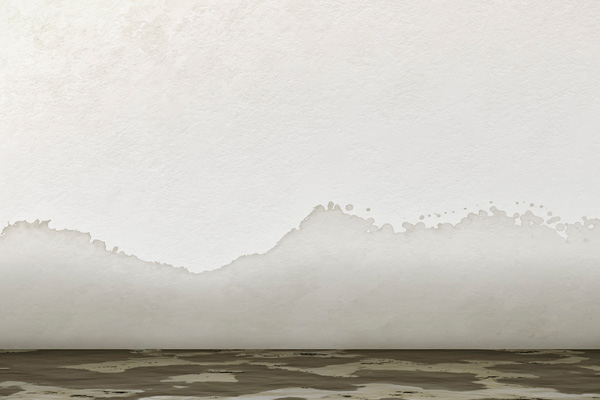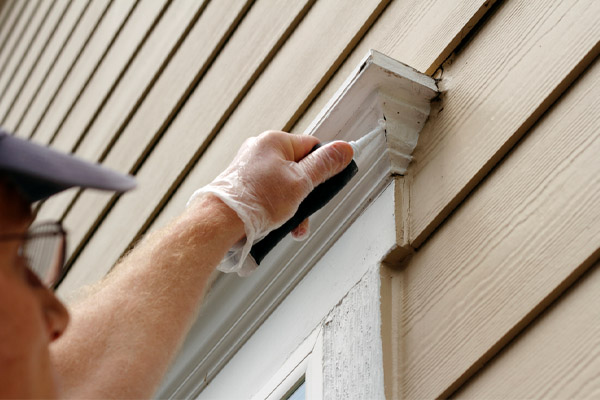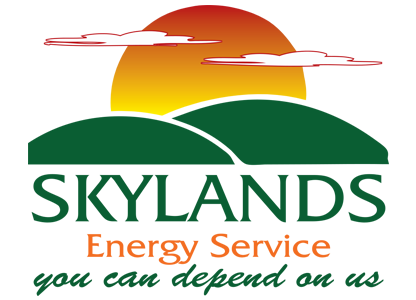
Maintaining a happy and comfortable home involves much more than finding a comfortable temperature. There are other factors at play including the humidity. Humidity can be easily defined as the total amount of moisture in the air. This is why you tend to sweat more when it’s humid outdoors. If humidity ends up increasing to a level that is higher than what’s considered optimal, people generally start to feel the effects of it. A lot of homeowners don’t comprehend why their home gets humid. A common question we are asked is “Why is my house so humid?”. Luckily, you’ve come across this article. By the end, you will learn why your house gets humid and some of the best strategies to mitigate the problem.
Why Does My Home Feel Humid?
Table of Contents
If you have a fully operational air conditioner and yet you don’t feel comfortable in your home, it’s time to look at the humidity levels. Checking the indoor humidity level is a good way to identify the issue. Chances are, your humidity levels are higher than they should be. Most professionals say humidity levels should remain anywhere from 30 to 50 percent. Anything lower than the minimum can be bad news for the home. Whereas, if it rises too high, it can make things uncomfortable and just as troublesome. Your home could be experiencing spikes in humidity for many reasons. One could be due to sustained property damage. Another reason could be incompatible equipment. It could even be the result of environmental factors.
How Can You Tell If You Have a Humidity Problem?
There will be signs you will be able to notice if you are suffering from a humidity problem in your home. Here are a few of the easiest to spot.
1. Condensation
One of the key things to look for when you are trying to figure out if you are dealing with any sort of humidity problem in your home would be visible condensation. When you have cold weather outside, the moisture present in the air is likely to turn from gas to liquid and show up on your window panes. If your windows look blurry, you’re likely experiencing condensation on your windows. It forces you to wipe away the excess moisture to see outside. You can also find this type of condensation on steel or metal doors.
2. Paint Peeling Issues
Another thing you may notice is a lot of moisture on the walls. If you have a lot of humidity in your home, visible moisture on the walls is likely to be noticeable. If it’s been like that for some time, you may even notice paint peeling. Another symptom could be the bubbling of your wallpaper. When the paint is consistently exposed to moisture, it will peel. Therefore, it’s a good thing to look for if you want to spot trouble signs of excessive humidity indoors.
3. Wet Stains

Another good thing that you can check for would be wet stains. These stains can be visible in a lot of places throughout your home. You want to look at the ceiling to see whether or not there are any noticeable stains. Then, you can look at the walls for the same thing.
4. Dark Spots
Any dark spots can be signs that you have excessive moisture permeating your home’s air. You want to specifically check for any dark spots on surfaces throughout your home. These dark spots could be mold growth. You will typically find mold to be dark green or black. Mold loves humid environments. Because of this, you may find it most present in bathrooms and other areas of your home where it’s likely to be most humid.
5. Sweating
One of the easiest ways to tell your home has too much moisture in the air is if everyone is sweating inside of it. Persistent sweat can be easy to identify as a symptom of a home that has high humidity. The sweat on your skin is meant to evaporate and provide a cooling effect. As mentioned before, if your home has too much moisture in the air, it won’t do it quickly enough. Thus, it’s only going to cause you to sweat even more and overheat.
Some Causes Of High Humidity In Your Home
1. Various Daily Activities

If you are someone that is consistently cooking in the kitchen, boiling water, and doing other things, you could have high humidity because of it. The water that evaporates gets into the air. It shouldn’t cause problems if your home is properly designed and well ventilated. However, if your home has ventilation issues, it could build up over time and become an issue.
2. Inadequate Ventilation
As mentioned, the ventilation in your home is essential for keeping the humidity levels from getting too high. Your home has ventilation to get excess moisture out of your home. This can keep your home much more comfortable by bringing humidity levels to optimal percentages. For instance, a bathroom typically has an exhaust fan to keep excess moisture from building up.
3. Leaks In Plumbing
You may have excessive moisture building up in your home if you are suffering from any sort of plumbing leaks. It could also be caused by a roofing leak. If you are experiencing plumbing issues or roofing issues, you’ll need to hire a professional for assistance. Fixing the issue is the only way to get your humidity levels under control.
4. Oversized Air Conditioner
You may be experiencing humidity problems because you didn’t do enough due diligence when buying your AC unit. If you have an oversized AC unit, it can lead to problems in your home. With an oversized unit that has effective cooling capabilities, it will reach the thermostat’s temperature setting too quickly. This can result in the unit shutting off before it does its job of reducing the home’s humidity levels. This can result in excessive humidity building up because the AC unit is too efficient and effective at cooling as it’s meant for a larger home/area. You’ll need to replace your unit with one that is properly sized to remedy this.
5. Moisture Seepage
You also want to check to see if moisture is getting into your home from the ground. Believe it or not, water can end up getting into your home in places you least expect it. You want to ensure you have good waterproofing measures in place to avoid this issue.
Some Benefits Of Having Optimal Humidity Levels
As you can tell by now, having high humidity present in your home can be a major issue. Not only can it increase the likelihood of mold growth, but it can also cause a lot of indoor air quality concerns. This is especially bad for those that suffer from respiratory illnesses. By effectively controlling the humidity levels and keeping them at the optimal percentages, you can avoid having air quality concerns. You can also make your home a lot more comfortable to spend time in because you won’t get sweaty or sticky. After all, there won’t be excess moisture in the air.
However, you also don’t want to have low humidity either. Having low humidity can be a problem too. Low humidity is likely to contribute to dry skin, sore eyes, sinus problems, and more. You’ll find houseplants dying, wallpaper peeling, and a lot of other issues. You can also damage a lot of the wood in your home as it will start to crack from the lack of moisture in the air. Because of these things, you want to keep your humidity levels at optimal levels. You’ll find a lot of newer indoor thermometers that can measure both the temperature and humidity inside of your home.
Some Ways To Decrease Humidity In Your Home
1. Get a Dehumidifier
One of the best ways to deal with excess humidity in your home is by getting a dehumidifier. This is a product that is specially made to suck out the moisture from the air. You can find them available in various sizes. These can be a good option for getting rid of high humidity levels in bathrooms and other high humidity environments. If you have a problem that spans your entire home, you may want to look into whole-house dehumidifiers.
2. Optimize Ventilation
You want to ensure that there is plenty of air moving throughout your home. This is especially true in especially prone areas to high humidity like the kitchen or bathroom. Also, try to use exhaust fans whenever possible to push out the excess moisture.
3. Weatherstripping

This is a good thing to do if you live in a humid climate. Try to place weatherstripping all around the doors and window cracks of your home. This can help you create an airtight seal. You can also do the same for the edges of your sinks and toilets by using caulk.
4. Insulation
Having properly installed insulation is another good tip. Insulation can effectively stop conditioned air from moving across any of the walls through the crevices. It’s also a good way to create a thermal barrier from the weather outside.
5. Get The Right Size Air Conditioning System
When you get routine HVAC maintenance, you can ask the technician whether or not your air conditioning unit is properly sized. If you have an oversized cooling unit, getting an HVAC replacement can solve your humidity concerns.
Final Thoughts
There are plenty of households out there having humidity problems in their homes. Not only does it make living in the home uncomfortable, but it can contribute to a lot of other issues. You don’t have to live with excessive humidity. There are plenty of things to do to prevent it and remedy the problem. Utilize some of the best moisture reduction tips above. If you are still experiencing high humidity levels after trying all of the tips, you can contact a professional HVAC technician for help. They can offer you the advice and solutions you need to get rid of the problem for good.
Call Skylands Energy Service For All Of Your HVAC Requirements
 Skylands Energy Service has the best and most professional HVAC services throughout Central New Jersey. We only deploy the most qualified technicians that you can count on to get the job done efficiently and effectively. Every technician that we have on the team has the requisite knowledge, skills, training, and expertise to handle whatever HVAC issue you have.
Skylands Energy Service has the best and most professional HVAC services throughout Central New Jersey. We only deploy the most qualified technicians that you can count on to get the job done efficiently and effectively. Every technician that we have on the team has the requisite knowledge, skills, training, and expertise to handle whatever HVAC issue you have.
Skylands Energy Service has the most competitive rates in the area. We offer professional maintenance services that you can leverage to enhance the comfort of your home. You will also experience better heating and cooling efficiency saving you money over the long run. If you end up needing to replace your HVAC system, we have the expertise and knowledge to assess your home and recommend the right one within your budget. If you want to schedule service today, you can reach Skylands Energy Service by phone. We offer completely free in-home estimates so you know how much you will expect to pay before you agree to the service.
Contact us now at (908) 707-1776 to find out more!

